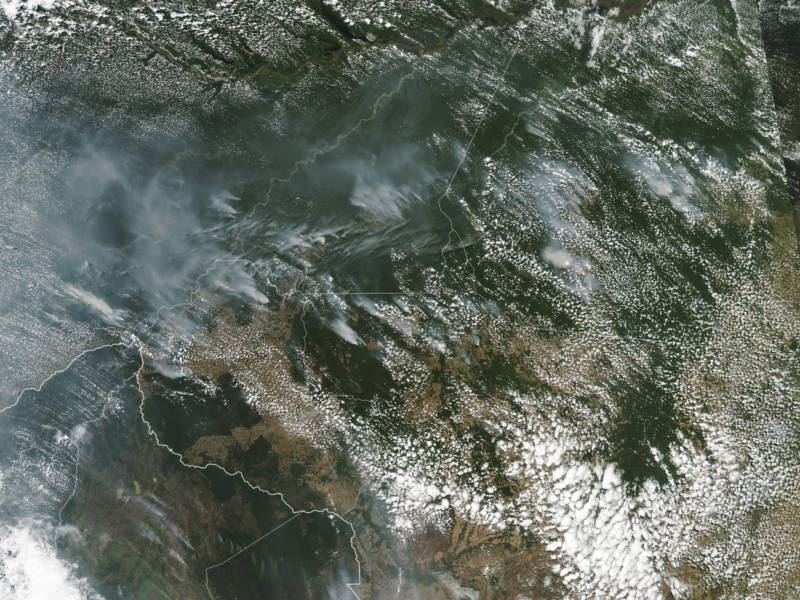He added that his government is “not insensitive” to the fires and that his government may look into measures to combat them. In a tweet Tuesday, Brazil’s environment minister, Ricardo Salles, attributed the fires to “dry weather, wind and heat” and said federal officials and equipment are available to help and “already in use.”
But a lot of deforestation has less to do with natural factors and more to do with human activities. INPE says the amount of land that was deforested last month alone represented a nearly 300% surge over deforestation in June 2018.
As NPR reported in 2015, deforestation such as this is often tied to subsistence farming and ranching, which uses more than two-thirds of Brazil’s deforested land — and which has tripled the number of cattle in the country in the past three decades.
“We estimate that the forest areas in the Brazilian Amazon have decreased something between 20 and 30% compared to the last 12 months,” Carlos Nobre, a researcher at the University of São Paulo, told German broadcaster Deutsche Welle.
Fluvio Mascarenhas, who works at a government agency called the Chico Mendes Institute for Biodiversity Conservation, told NPR’s Philip Reeves that operations that the agency usually carries out against illegal loggers and ranchers have been drastically scaled back this year. And that, he says, together with Bolsonaro’s comments, only encourages further illegal activity in the rainforest.
And that has him afraid.
“Every time you look at a satellite image of the forest,” he tells Reeves, “you see another little piece missing.”
Copyright 2019 NPR. To see more, visit https://www.npr.org.
9(MDAxOTAwOTE4MDEyMTkxMDAzNjczZDljZA004))

9(MDAxOTAwOTE4MDEyMTkxMDAzNjczZDljZA004))
